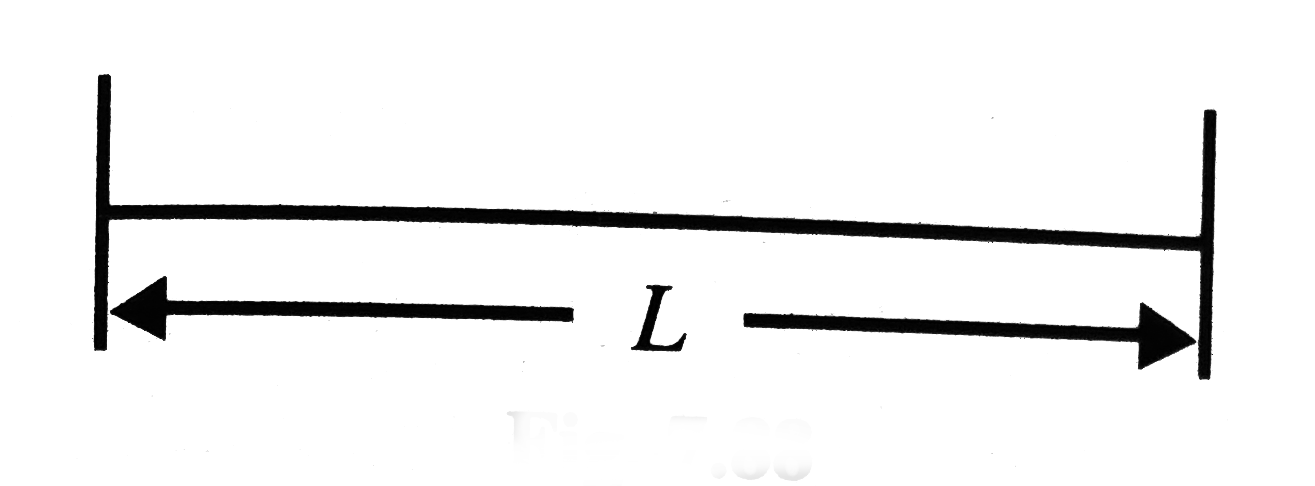Speed of sound waves in air
is independet of temperature
increases with pressure
increases with increases in humidity
decreases with increase in humidity
The correct Answer is:C
Due to presence of moisture density of air decreases.
We know that speed of sound in air is given by v=√γpρ
For any air γandp are constants.
v∝1√ρ where ρ is density of air.
v2v1=√ρ2ρ1
where ρ1 is density of dry air and ρ2 is density of moist air.
As ρ2<ρ1=v2v1>1⇒v2>v1
Hence, speed of sound wave in air increases wiht in humidity.
Topper's Solved these Questions
- WAVESBook:NCERT EXEMPLAR ENGLISHChapter:WAVESExercise:MULTIPLE CHOICE QUESTIONS (MORE THAN ONE OPTIONS )
Explore 7 Videos
- WAVESBook:NCERT EXEMPLAR ENGLISHChapter:WAVESExercise:VERY SHORT ANSWER TYPE QUESTIONS
Explore 7 Videos
- UNITS AND MEASUREMENTS Book:NCERT EXEMPLAR ENGLISHChapter:UNITS AND MEASUREMENTS Exercise:Long Answer Type Questions
Explore 9 Videos
- WORK, ENERGY AND POWERBook:NCERT EXEMPLAR ENGLISHChapter:WORK, ENERGY AND POWERExercise:Long answer
Explore 1 Video
Similar Questions
The equation of a sound wave in air is given by △p=(0.02)sin[(3000)t−(9.0)x], where all variables are is SI units. (a) find the frequency, wavelength and the speed of sound wave in air. (b) If the equilibrium pressure of air is 1.01×105Nm2, What are the maximum and minimum pressure at a point as the wave passes through that point?
View SolutionSpeed of sound waves in a fluid depends
View Solution
Knowledge Check
Speed of sound waves in a fluid depends
Adirectly proportional to the square root of bulk modulus of the medium.Binversely proportional to the bulk modulus of the medium.Cdirectly proportional to the density of the mediumDinversely proportional to the density of the mediuma=1,052+1.08t
The speed of a sound wave in air depends on the air temperature. The formula above shows the relationship between a, the speed of a sound wave, in feet per second, and t, the air temperature, in degrees Fahrenheit (.∘F).
Which of the following expresses the air temperature in terms of the speed of a sound wave?At=a−1,0521.08Bt=a+1,0521.08Ct=1,052−a1.08Dt=1.08a+1,052a=1,052+1.08t
The speed of a sound wave in air depends on the air temperature. The formula above shows the relationship between a, the speed of a sound wave, in feet per second, and t, the air temperature, in degrees Fahrenheit (.∘F).
At which of the following air temperatures will the speed of a sound wave be closest to 1,000 feet per second?A−46∘FB−48∘FC−49∘FD−50∘F
Let speed of sound waves in hydrogen gas at room temperature is v0. What will be the speed of sound waves in a room which contains an equimolar mixture of hydrogen and 'He' at same temperature :-
View SolutionSpeed of sound wave in a gas V1 and rms speed of molecules of the gas at the same temperature is v2.
View SolutionFigure 7.88 shows a stretched string of length L and pipes of length L,2L,L/2andL/2 in options (a) , (b), (c ) and (d) respectively . The string 's tension is adjusted until the speed of waves on the string equals the speed of sound waves in the air . The fundamental mode of oscillation is the set up on the string . In which pipe will the sound produced by the string cause resonance ?

View SolutionFigure 7.88 shows a stretched string of length L and pipes of length L , 2L , L/2 and L/2 in options (a) , (b), (c ) and (d) respectively . The string 's tension is adjusted until the speed of waves on the string equals the speed of sound waves in the air . The fundamental mode of oscillation is the set up on the string . In which pipe will the sound produced by the string cause resonance ?

View SolutionIf vrms is the rms speed of molecules in a gas and v is the speed of sound waves in the gas, then the ratio vrmsv is
View Solution

